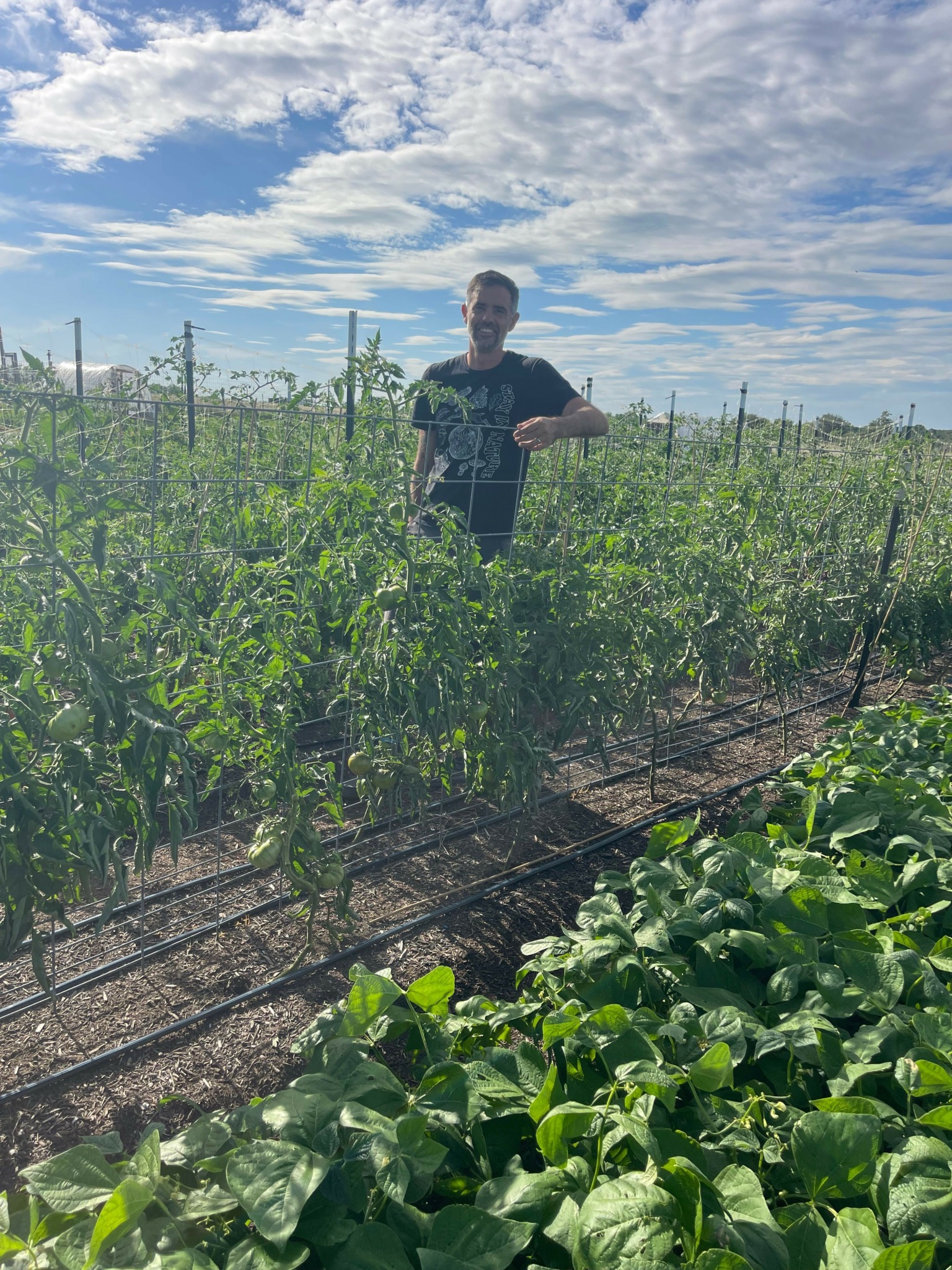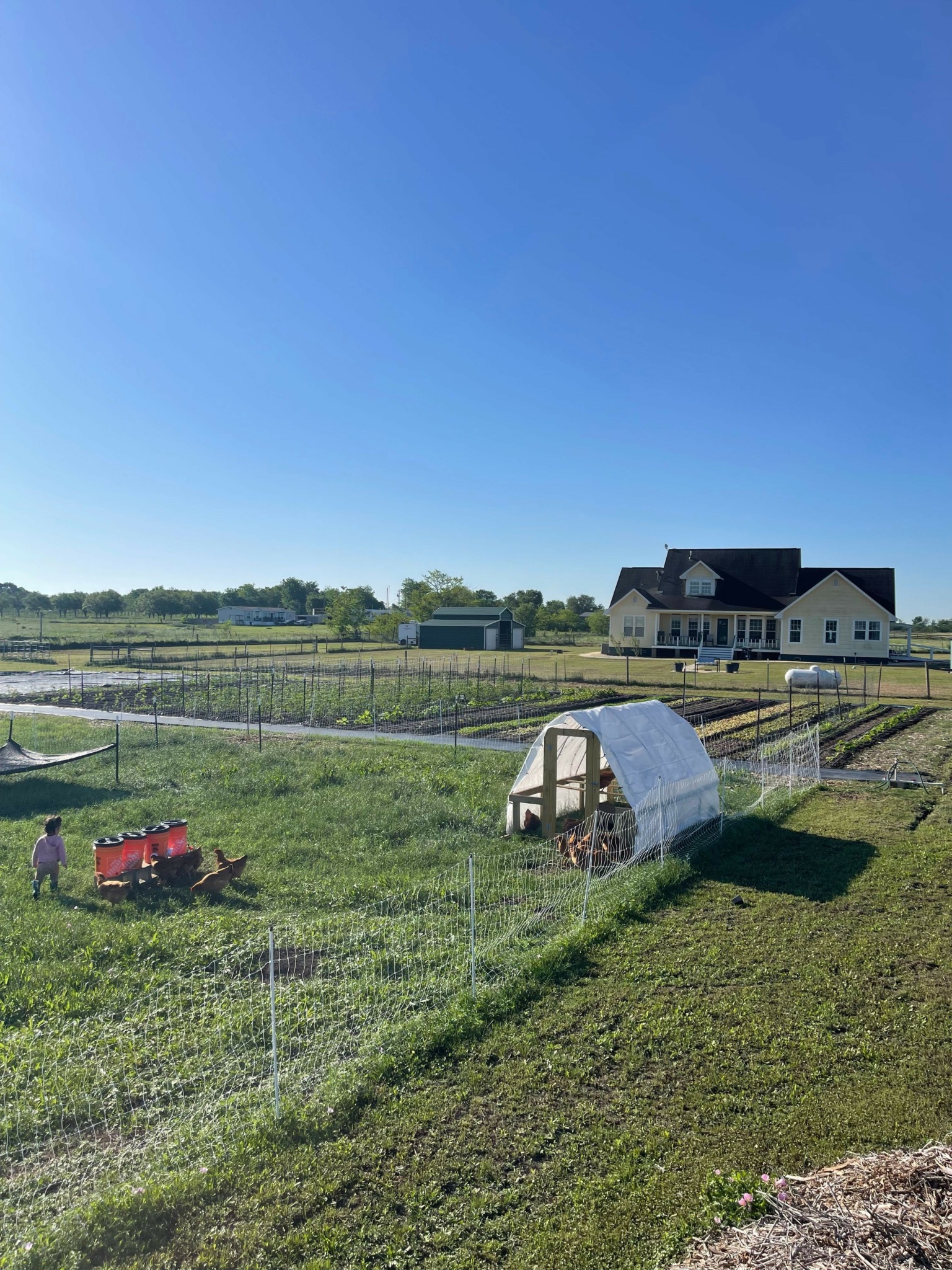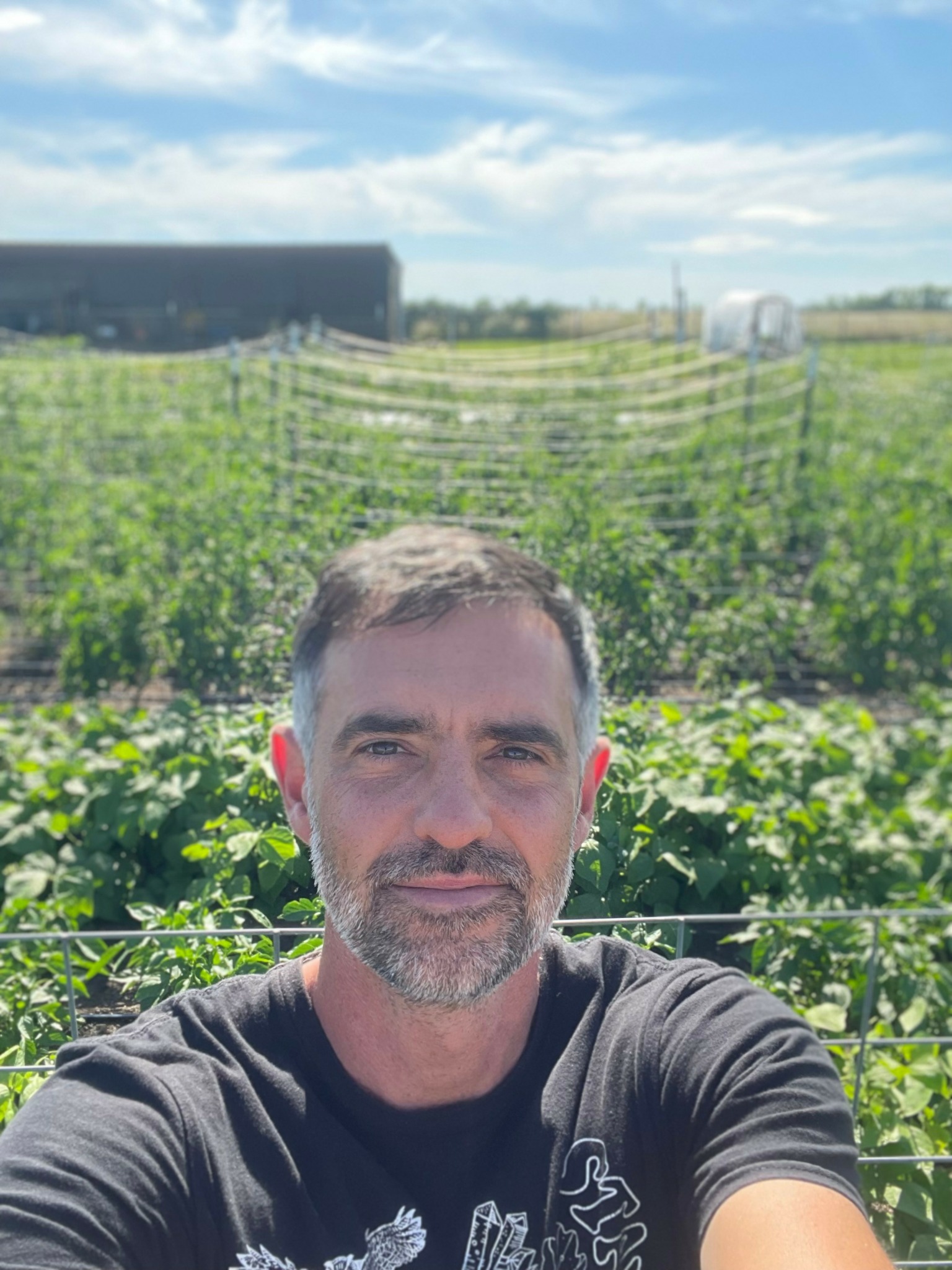Alright – so today we’ve got the honor of introducing you to Paul Shinneman. We think you’ll enjoy our conversation, we’ve shared it below.
Alright, Paul thanks for taking the time to share your stories and insights with us today. Can you talk to us about a risk you’ve taken – walk us through the story?
I’m currently farming seasonal fruits and vegetables and fruits with my wife, Christina. We’re in our first season of selling the products that we grow. I’ve left more traditional lines of work to pursue farming full time while my wife still works full time as a physician assistant for Memorial Hermann. I hope to grow the business over the next couple years to the point where she can leave her full time job as well. To get to this point it’s been about 9 years and several big decisions or risks. In 2017 I was working as an engineer in oil & gas in Houston. I had been in the industry for about 11 years. I really felt dissatisfied with the work from the beginning. I think early on I always thought I would end up doing something but I didn’t know what. I thought this new career idea would just eventually come to me or I would serendipitously discover the thing I was truly meant to do. After 10+ years it never did and I was now 30 and experiencing a mild quarter life crisis. I knew I would regret it if I did another 10 years doing the same work. I had to find something else to do. This is where I took my first major risk. I felt like I needed some manufactured urgency to change the path I was on. I was up for a promotion at my engineering job and instead of taking the new position I told my boss that I wanted to leave the company and engineering all together. Everyone around me said I shouldn’t have quit without knowing what I wanted to do next. I believed, somewhat naively, that my boss would let me continue to work until I figured out what I wanted to do next as long as I was really honest with him. I happened to be right, and he supported me with whatever I wanted to do. He just asked that I keep an open dialogue with him and update him regularly on my transition. I started asking myself what is it that you like to do that you wish you could get paid for. My main hobbies up to this point were all music and comedy related. I played guitar and drums and frequently attended live concerts in Houston and traveled the country going to music festivals. I had also started doing improv and sketch comedy in Houston and really enjoyed the creative outlet. My time in the improv community had also inspired me to take risks. The act of improv and performing in front of strangers with no script or preparation feels risky every time you do it. I also watched friends leave Houston and move to New York, Chicago, and L.A. to pursue careers in comedy, acting, and writing. It made my decision to change my life path seem more attainable. I didn’t think I had a future career as a musician or comedian but I wanted to do something in the music industry. I thought maybe working for a music venue would be fun and would bring me inside a world that I spent a lot of time watching from the outside. I didn’t know how I was going to get a job at a venue or what types of jobs existed at music venues. I thought maybe I would need to go back to school for a business degree or some other vocational school to learn to become a sound or light engineer. I started emailing all the venues in Houston and just asking to speak to someone about what opportunities there were at venues. I wasn’t even asking for a job, I just wanted some direction. Did I just need to get my foot in the door and work security or did I need to go to school and get a degree? For a while I didn’t get any responses and I was looking to apply to business school and focus on marketing. Eventually, I got a response from White Oak Music Hall and the person said that I didn’t need to go to school and that I just needed to get my foot in the door and start working for a venue. We go back and forth a few times about what type of jobs there are and I finally asked if they had any such openings and that I’d be willing to work part time for free. I eventually find out that I’m speaking with one of the owners and he offers me a part time job with the marketing team. This is 5 months after I had given my engineering boss notice that I wanted to leave the company. My second risk was to semi quit the same job again. I update him that I now have an opportunity to work for a music venue but it’s only 10-15 hours a week and pays almost nothing. I tell him I would still like to continue working but I would need to take half days 3 days a week to go work for the venue. He said he couldn’t hire me as a part time employee but that I was free to use my saved up time off however I like. I did the math and I figured out that I could take half days 3 days a week for almost 4 months. So that’s what I did. After another 3 months the other 2 marketing people on the team had quit and left only me. With 8 months of part time experience I made my case to hire me on full time to run the marketing department. They had few other options and I was highly motivated so they gave me the full time job. I continued both jobs for another month and then fully transitioned into my marketing role for the music venue. Within another year, other people were hired around me and I became the marketing manager. Less than a year later, the pandemic hit and I was furloughed from my dream job. I was once again in a place of great uncertainty and had no idea if I would ever get to go back to my marketing job and started contemplating what I would need to do next. I thought I might have to go back to engineering and I really didn’t want to. I played the same game I had before and asked what it was that I thought I might want to do. In the previous year or so my wife and I had picked up the hobby of gardening and growing our own food. We came to the hobby from a desire to improve our health and eat better, exercise more, sleep better, and destress. Once I had the free time that the pandemic gave me, I really leaned into the hobby. I built a bunch of raised beds, tore out our backyard and created in ground beds, built a chicken coop and bought chickens. The hobby was quickly snowballing. I wanted more experience and so I searched for nearby farms and came across two farming organizations Hope Farms and Plant It Forward. Hope Farms is a non-profit 7 acre farm that also works to educate children in healthy eating and growing vegetables and has a farmer training program. Plant It Forward is an urban farm support organization that helps refugees establish and operate small farms in the Houston area. I started volunteering for both. I worked as a farm hand at Hope Farms and I worked at the farmers market alongside the Plant It Forward farmers helping them sell their vegetables. Hope Farms eventually hired me as a part time farm hand and I worked there for about a year until my marketing job finally came back. I was happy to have my job back but I started to miss the farm work and started to realize that I needed to find a way to farm full time and my wife and I started discussing how we could make that happen. We wanted to start looking for land where we could start a small farm. At the end of 2021, Plant It Forward reached out to me and asked if I would consider working for them full time in their farmer education department. I was thrilled to have this opportunity because it would immerse me in the new world I thought I wanted to be in and get paid for it. I had to go to my music venue boss and have a very familiar conversation. I told him my plans to go work for Plant It Forward and that we were eventually going to start our own farm. I also said I wanted to continue working part time for the venue because I did enjoy it and figured it would give them more time to find my replacement. My boss was once again very supportive and appreciative that I was wanting to stay on and help the venue transition through my departure. I expected to only stay on for maybe another 2-3 months while they found a replacement but I’m actually still working at the venue at the time of writing this and my actual last day is May 30th, 2025. Over the next 2 years I worked for Plant It Forward full time and got a ton of experience on how to start and manage small farms. During this time my wife and I slowly piece together our plan to start our own farm. We start searching all the rural areas around Houston for land every weekend, we sell our house, and move into an apartment in Waller which was in the general area where we thought we wanted to end up. We have a baby, I leave Plant It Forward full time but take a part time role. Selling our house and leaving Plant It Forward were risks three and four. We spent another year searching for our farm and finally found 10 acres and a home in Hempstead in July of 2024. Risk number five is sinking all of our savings into the home and land and investing in the start up of our farming business. We spent six months preparing our first growing space. We are intentionally starting very small and will expand with demand. We sold our first vegetables at a farmers market one month ago in April of 2025. We had a great first month of sales and are on track to be profitable within our first year.
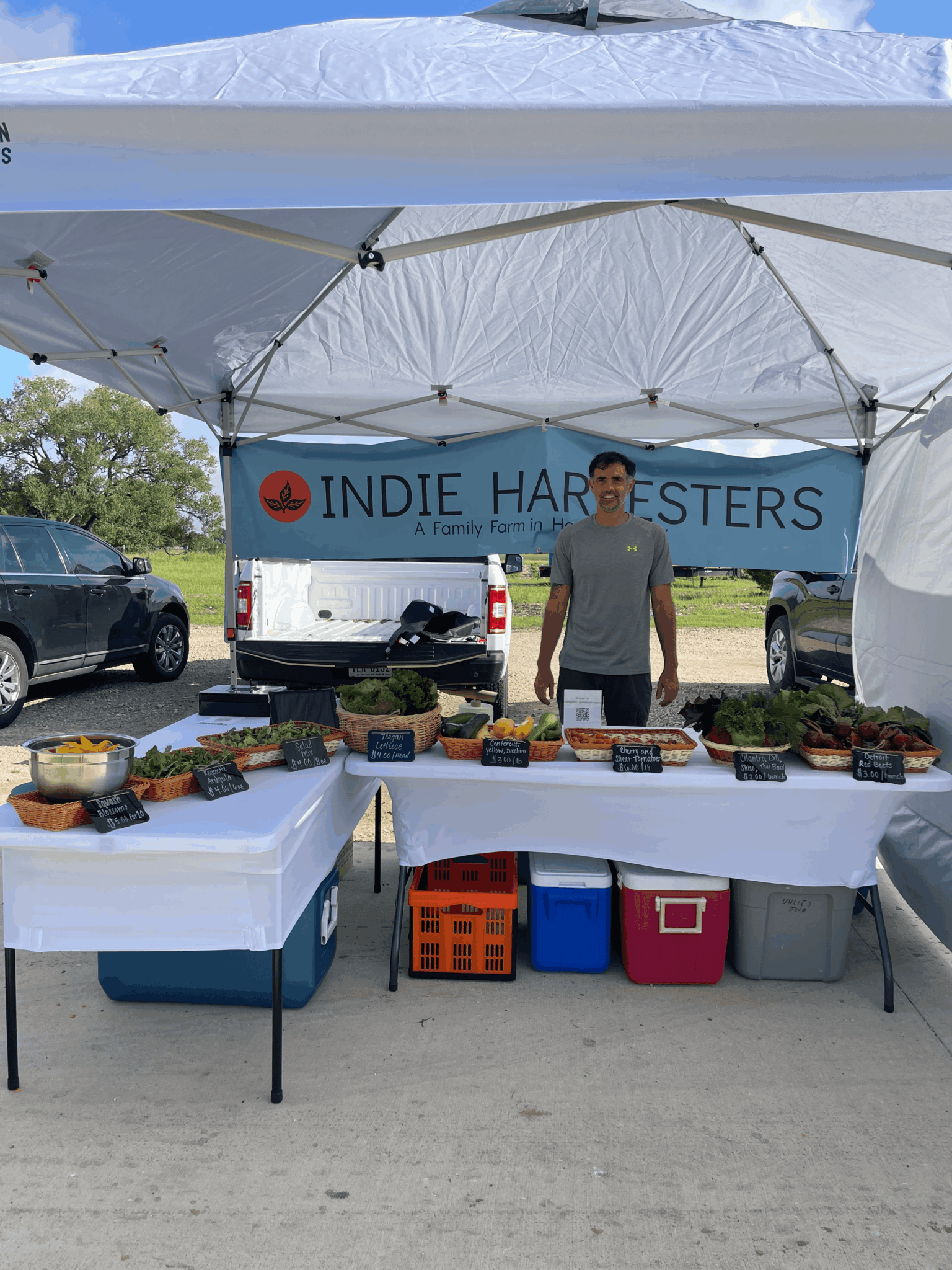
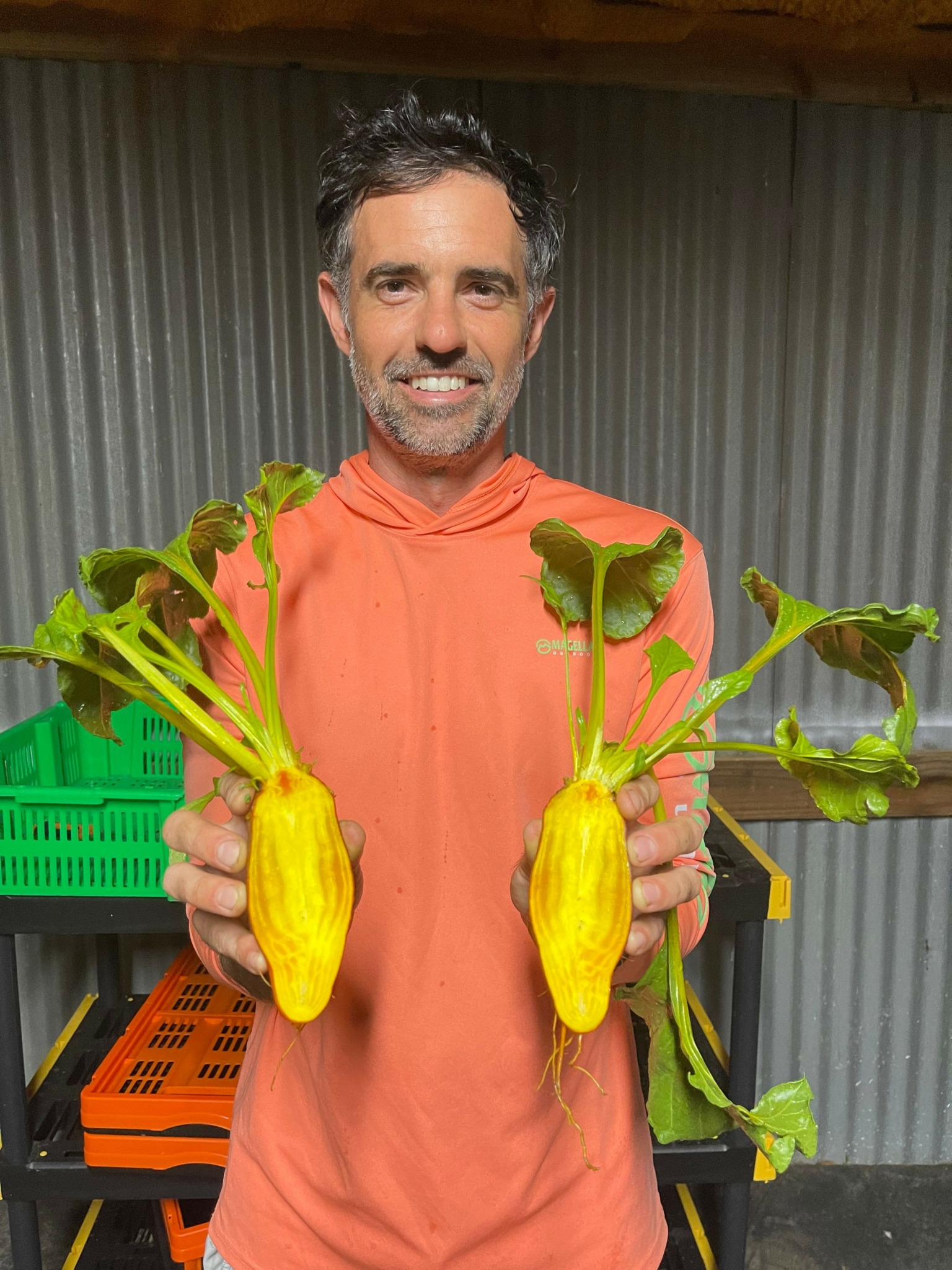
Awesome – so before we get into the rest of our questions, can you briefly introduce yourself to our readers.
I got into growing food and gardening as a hobby with my wife about 6 years ago. We both wanted to eat better and thought that the foods we should be eating are ones we could grow. So we started growing food in our backyard. It quickly resonated with me and really checked a lot of boxes for me. It’s great exercise which leads to great sleep. It promotes healthy eating, the work can be meditative, and there is a community of people you become connected with. I would consider these things the pillars of good overall health. So in my mind it’s an extremely efficient activity since a single activity provides benefits in many different domains. The hobby quickly grew into a desire to do more and we made the decision that we were going to start our own farm. It took us 3 years to put together the plan, sell a house, save money, and find the right property to start our farm. In this time I worked in the industry with 2 farming organizations. I was able to learn a lot about how to actually do farm work and grow food and how to start and run a farming business. We started preparing for our first growing season in July 2024 and 9 months later were selling our first vegetables at a farmers market. We currently grow seasonal fruits and vegetables but our long term goals include starting a fruit orchard, raising chickens, raising goats, providing agricultural education, and providing on farm experiences. We grow everything using practices that go beyond organic requirements. We only use compost, water, and sunlight to grow our vegetables. I’m still involved in agricultural education with the organizations that I’ve worked for the last few years and I plan to make the farm an extension of the education work that I’ve been doing. I hope to use our farm as a way to teach everyone from children to adults that are interested in gardening, homesteading, or starting their own farm.
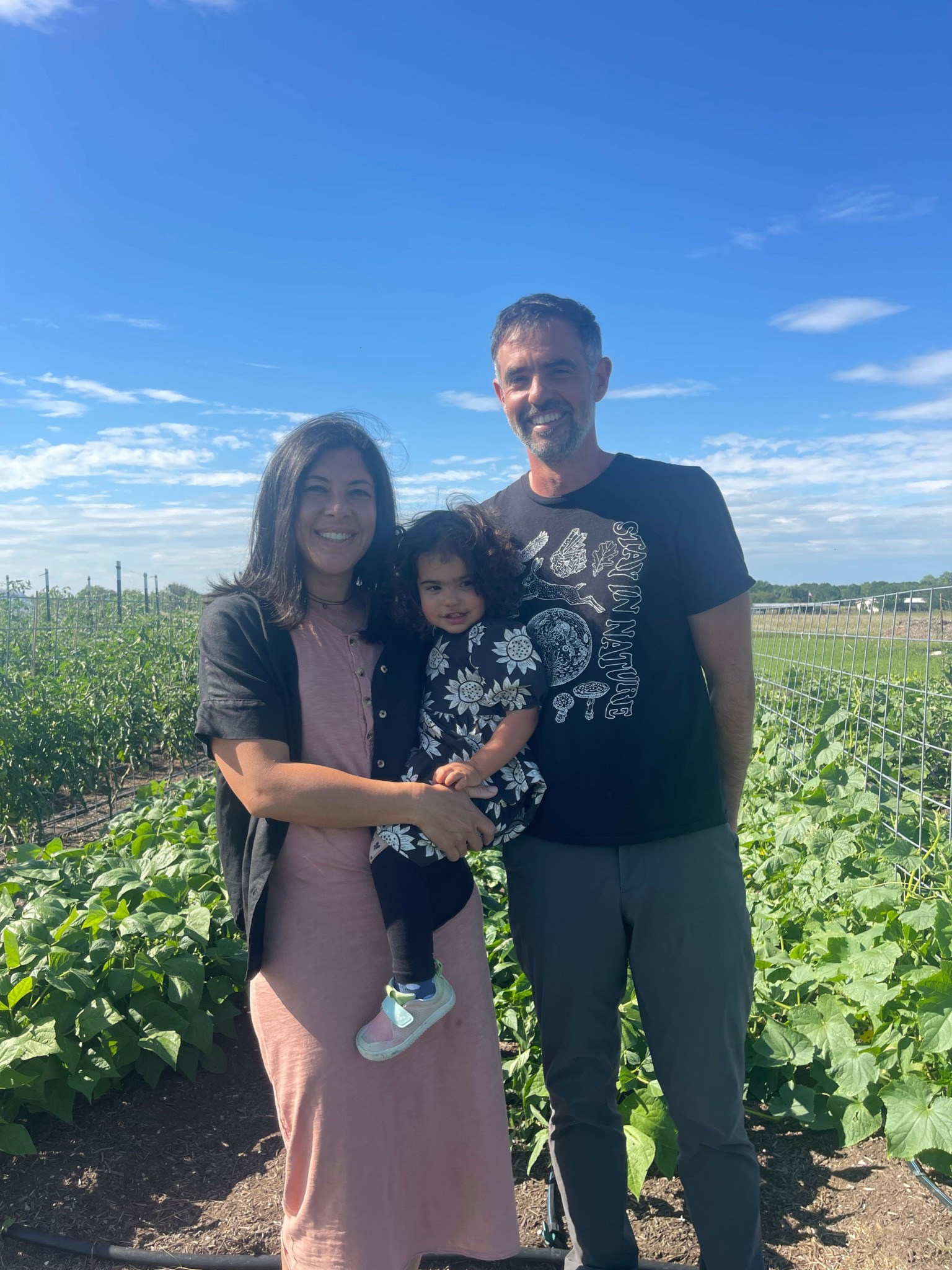
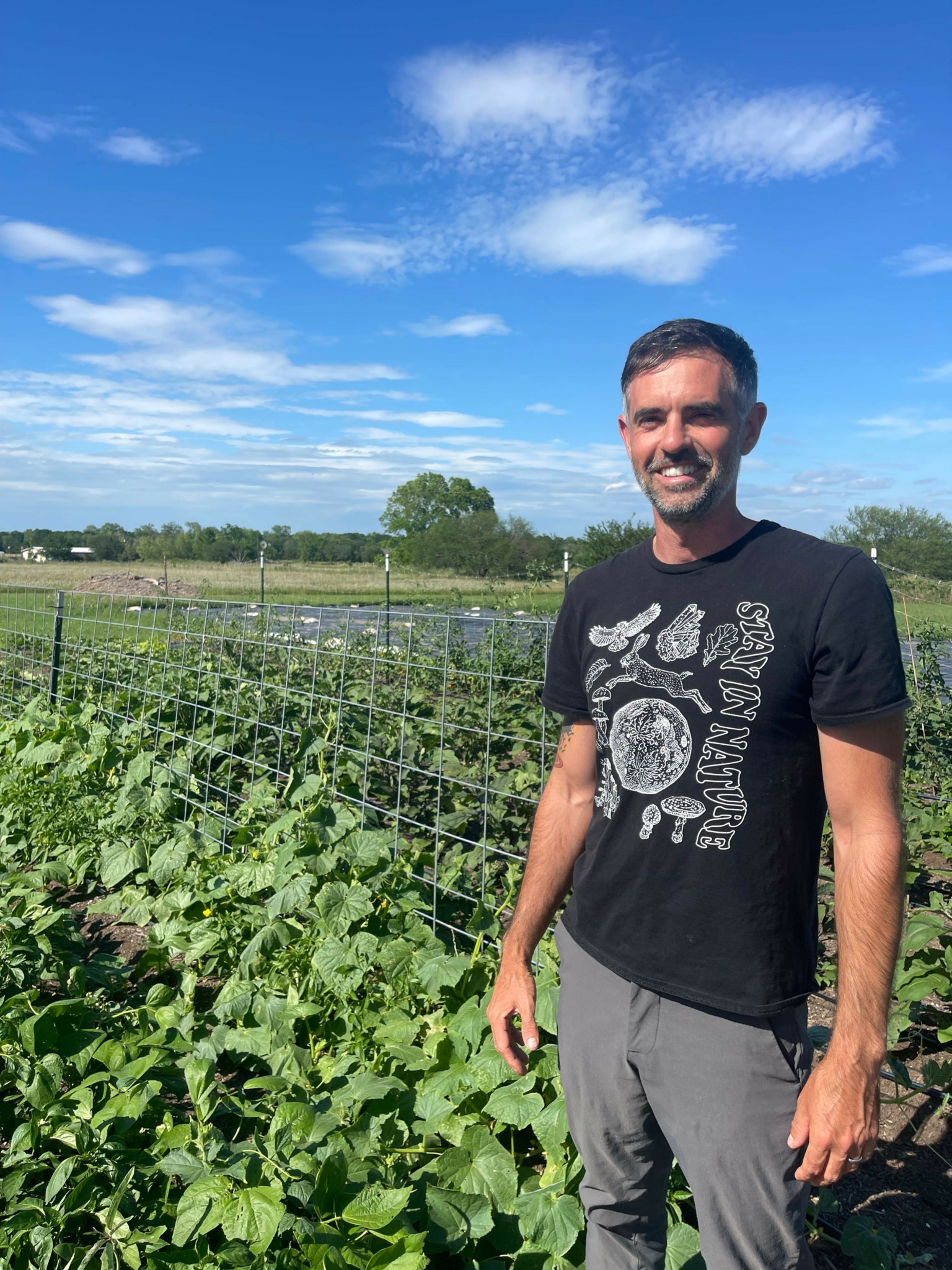
Can you open up about how you funded your business?
What helped fund the business was patience and careful planning. I started to pay very close attention to our home finances and just by the act of observing how we were spending money we started to spend more conservatively and saving more each month. We had some advantage because we had worked other careers for 15 years and had some savings already but we also spent over 3 years saving money and carefully planning the farm start up and figuring out what was the minimum farm size we could start up and still operate as a business and not just a hobby garden. We’re pretty much as small as you can be and be a profitable business. Starting small meant fewer start-up expenses and has made starting the business affordable without taking any loans. We will now let profit from the business fund its own expansion as demand increases.
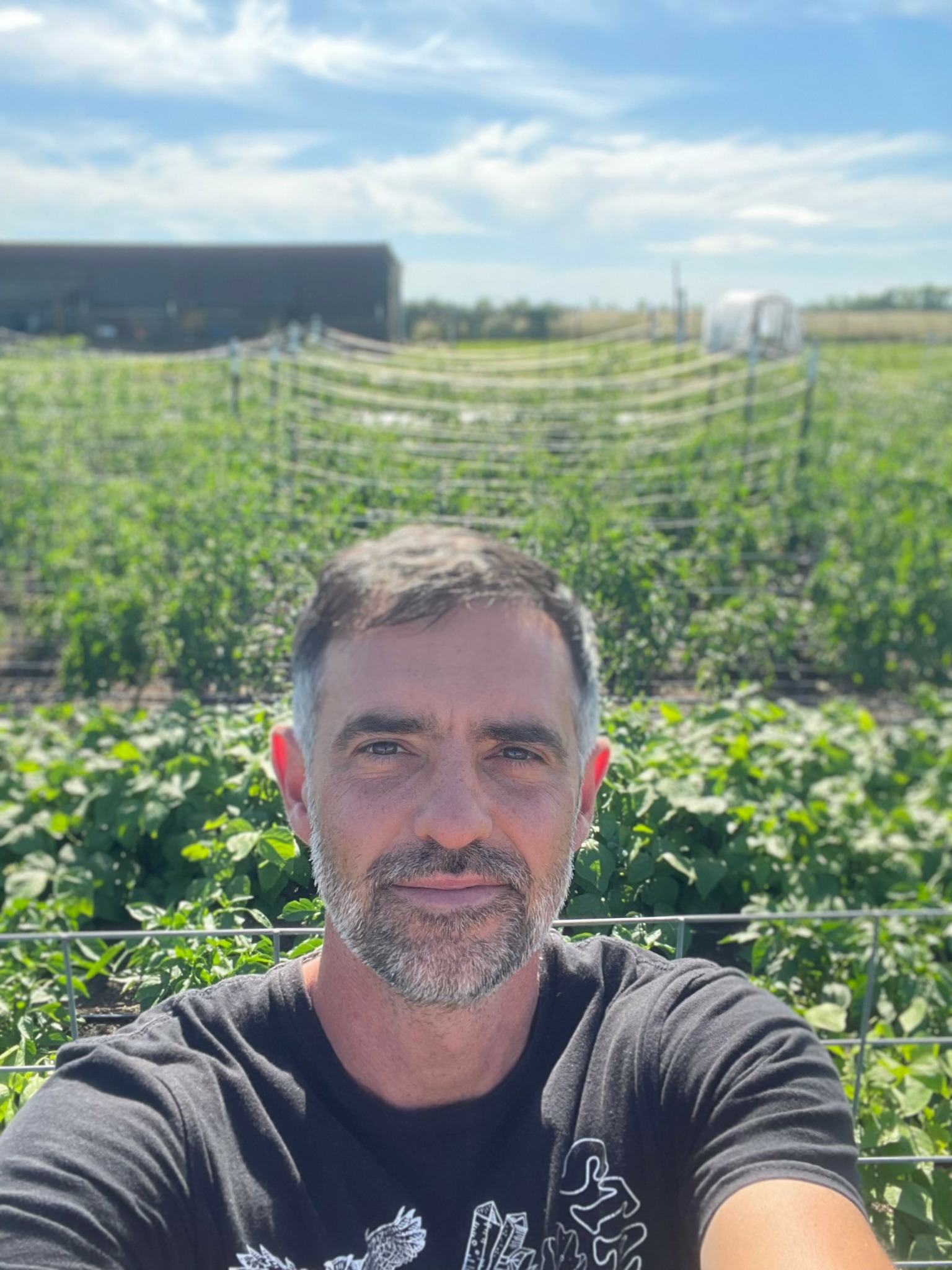
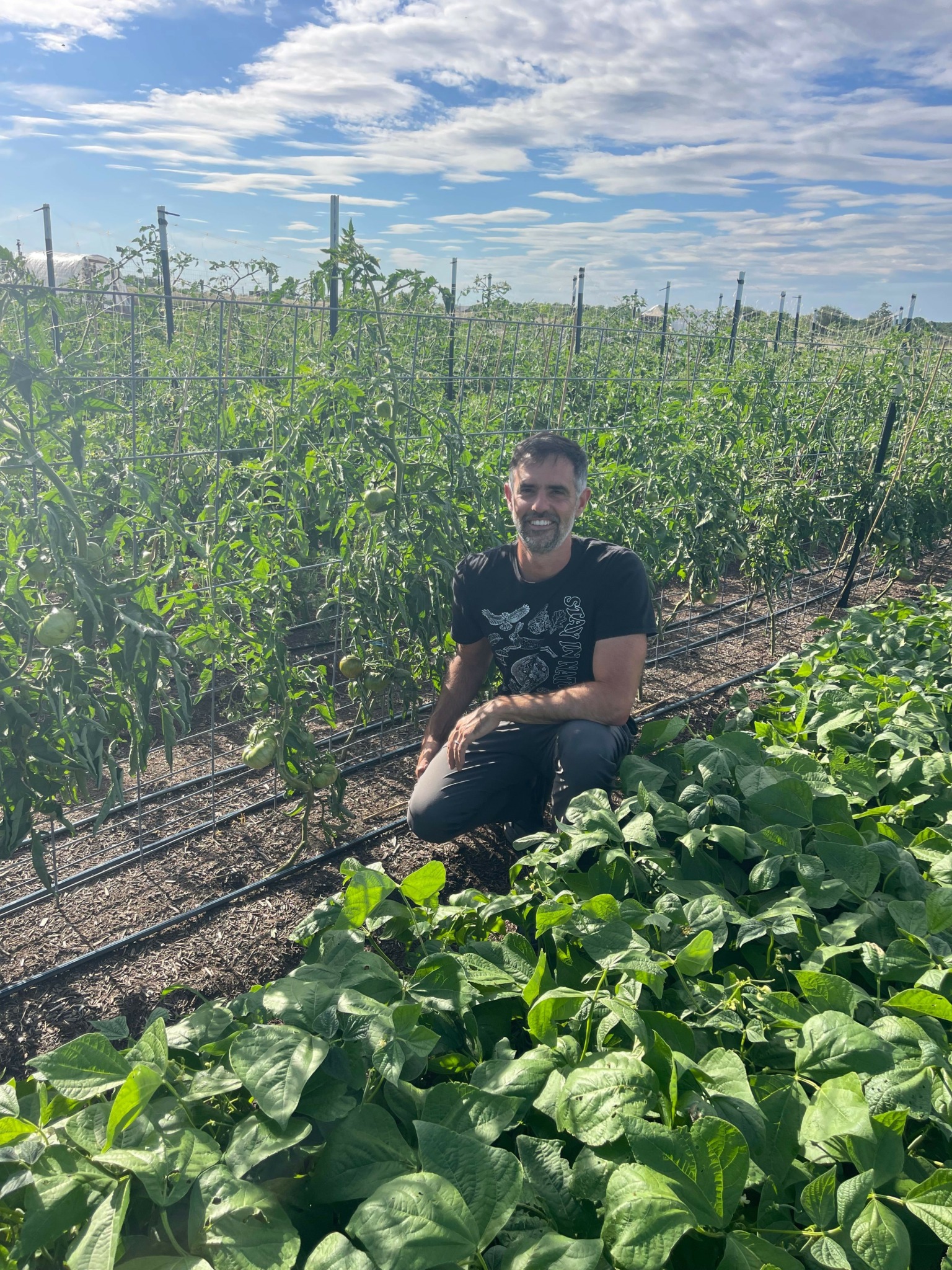
Does your business have multiple or supplementary revenue streams (like a ATM machine at a barbershop, etc)?
We are a very new business and have a couple of revenue streams and we intend to add more revenue streams as we get more established. We currently sell our products to a farm store and a farmers market. We’re also currently talking to restaurants to provide produce for their menus. Our future plans include selling eggs, honey, a wide variety of fruits, providing educational services, private event hosting, and on farm experiences. Diversification of our revenue will make us more resilient to unexpected losses. We want to be able to withstand losses from weather events, pest events, plant disease, or loss of a market.
Contact Info:
- Website: https://indieharvesters.com
- Instagram: @indieharvesters
